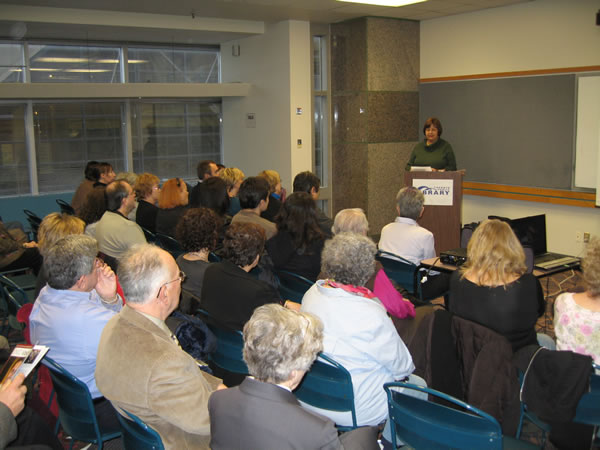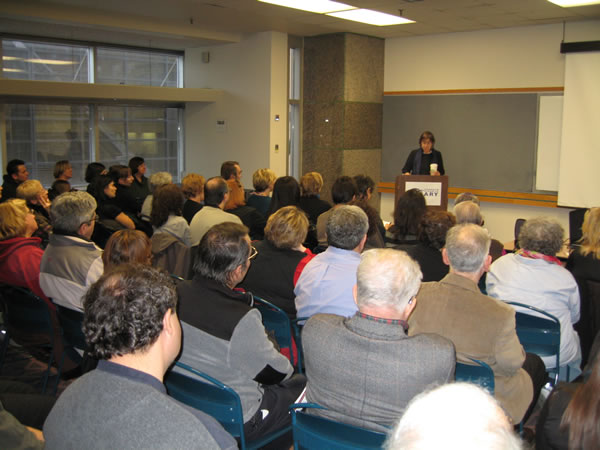Get To Know Us
The Jews of Macedonia
Sunday, January 24th, 2010
The first lecture event of the Society’s season was a resounding success. We were filled to capacity at the North York Central Library. Ginny Evans, co-President of the Historical Society welcomed everyone and introduced the guests, Marija Makeska, the Emerging Filmmaker from Wayne State University, Michigan, and Dr. Christina Kramer, linguist and chair of the Department of Slavic Languages & Literatures, at the University of Toronto.

Dr. Kramer gave us an overview of the history of the Jews in Macedonia, with particular focus on the period between the 15th century arrival from Spain and Portugal to their deportation and death in WWII. Virtually 98 percent of the total Jewish population in Macedonia, which had numbered close to 90,000 including the Aegean part, perished during the Holocaust. Many of them, both men and women, had joined the partisans, and fought alongside Macedonians in both Yugoslavia and Greece.

Today in the Republic of Macedonian there remain approximately 200 Jews. The Republic of Macedonia is building a Holocaust Memorial on the site of the old Jewish neighbourhood in Skopje to honour the victims and in 2000 the government passed an heirless property restitution law putting Macedonia at the forefront at passing such legislation. A synagogue has been established funded, in part, by the congregation of Beth Israel of Phoenix, Arizona.
Get To Know Us, the short documentary, was screened after the overview. The film covered the history of Jews in Macedonia from the Byzantine and Ottoman eras to the present, providing an added visual dimension to that history. Makeska’s film Soulmates, was one of the Emerging Films at the Macedonian Film Festival in 2009 and dealt with the human aspect of the deportation, focusing on the relationship between two young girls, one Macedonian and one Jewish. Makeska’s aunt lived very close to the Monopol, the tobacco factory, used as a transit camp by Bulgarian authorities during deportations of Jews from Macedonia and it was this family connection which drew her thematically to the topic. Marija was available afterwards to answer questions about the genesis of this film project, and even recited a short poem in Ladino, the language the Sephardic Jews brought with them from Spain to the Balkans.
The Consul Generals from Israel and Macedonia were invited to attend, however, Consul General Gissin of Israel sent his regrets. The ensuing questions and discussion brought Consul General Trenevski to his feet with some additional history and information.
This event proved to be an interesting and engaging topic which gave the audience an opportunity to become acquainted with this interesting intersection of Jewish and Macedonian history in the Balkans.
V. Andreoff
